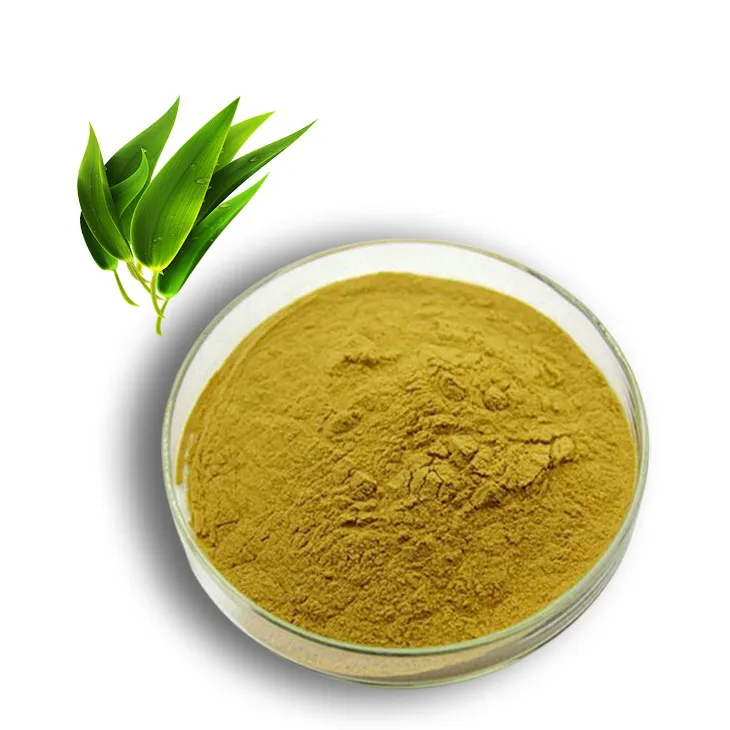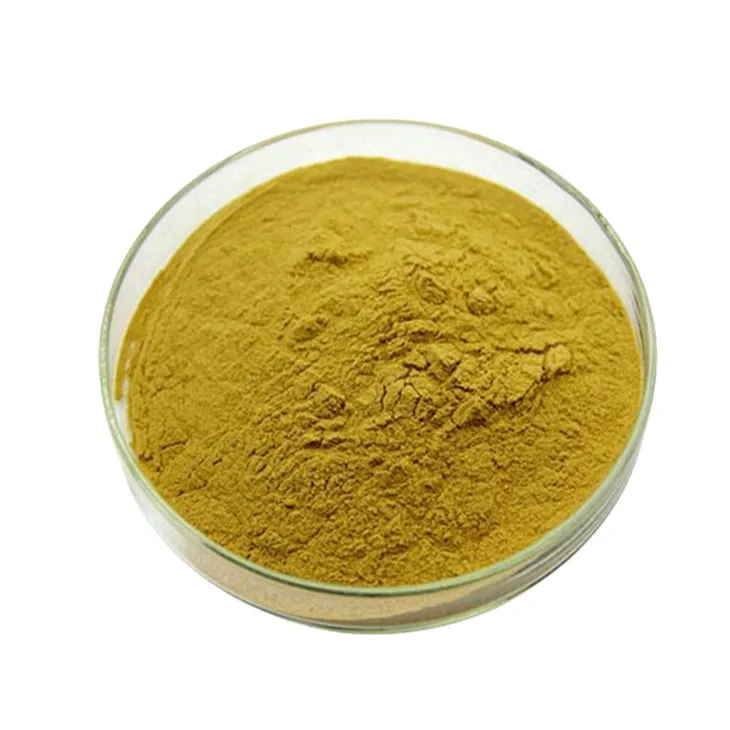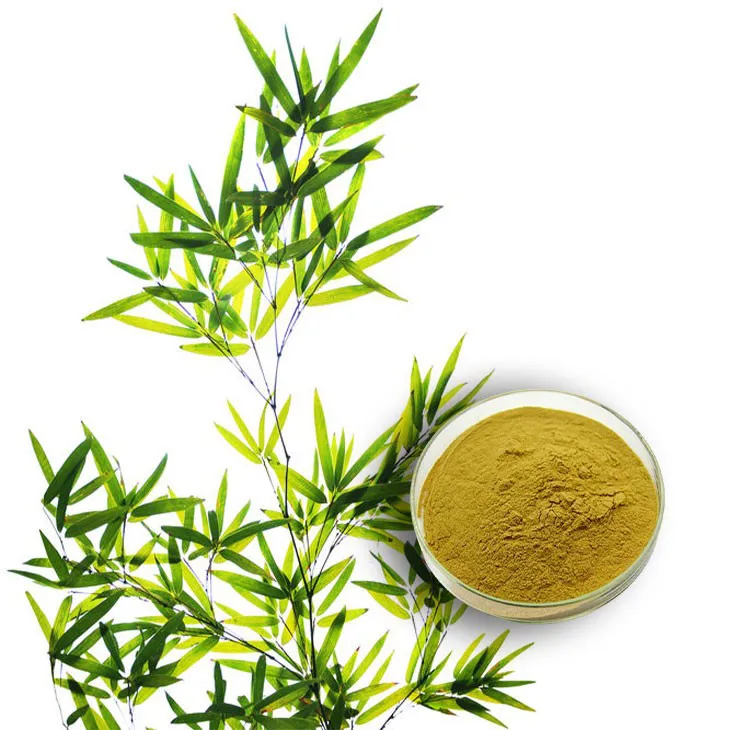- 0086-571-85302990
- sales@greenskybio.com
Purchase bamboo leaf extract in batches in an economical and efficient way.
2024-12-13

1. Introduction
Bamboo Leaf extract has gained significant popularity in various industries, including the food, pharmaceutical, and cosmetic sectors. Due to its numerous health - promoting properties such as antioxidant, anti - inflammatory, and antimicrobial effects, the demand for Bamboo Leaf extract has been on the rise. For businesses that require large quantities of this extract, it is crucial to find economical and efficient ways to make bulk purchases. This article will explore various strategies to achieve cost - effective bulk buying while ensuring quality.

2. Sourcing from Reliable Suppliers
2.1 Research and Reputation
When looking for suppliers of Bamboo Leaf extract, it is essential to conduct thorough research. Start by searching for suppliers with a good reputation in the market. Online reviews, industry forums, and referrals from other businesses can be valuable sources of information. Look for suppliers who have been in the business for a reasonable amount of time and have a track record of delivering high - quality products.
2.2 Certifications and StandardsCheck if the suppliers adhere to relevant certifications and standards. For example, in the food and pharmaceutical industries, suppliers should comply with Good Manufacturing Practice (GMP) standards. Certifications such as ISO 9001 for quality management can also indicate a supplier's commitment to quality. Suppliers that meet these standards are more likely to provide consistent and reliable bamboo leaf extract.
2.3 Supplier LocationConsider the location of the supplier. Sourcing from local suppliers can have several advantages. It can reduce transportation costs and lead times. Additionally, it may be easier to visit the supplier's facilities for quality inspections. However, do not overlook international suppliers if they can offer better quality or more competitive prices. Just be aware of any potential import regulations and additional costs such as customs duties.

3. Comparing Prices among Different Regions and Producers
3.1 Regional Price Variations
Different regions may have varying production costs for bamboo leaf extract, which can lead to price differences. For example, regions with abundant bamboo resources and lower labor costs may be able to produce the extract at a lower price. Research different regions known for bamboo leaf extract production, such as some parts of Asia where bamboo is plentiful. Analyze the price trends in these regions and consider how they may impact your bulk purchase cost.
3.2 Producer - Specific PricingEach producer may also have its own pricing strategy based on factors such as production scale, technology used, and brand value. Larger producers may be able to offer lower prices due to economies of scale. However, smaller producers may sometimes be more flexible in terms of pricing, especially if they are looking to enter new markets or gain a larger market share. Compare the prices offered by different producers, taking into account their production capabilities and quality levels.
3.3 Hidden CostsWhen comparing prices, do not forget to consider hidden costs. These can include packaging costs, shipping fees, and any additional charges for customizations or special handling. Some suppliers may offer a lower product price but then add on significant hidden costs. Make sure to get a detailed quote that includes all potential costs to accurately compare the overall cost of purchasing from different sources.

4. Taking Advantage of Quantity Discounts
4.1 Understanding Quantity Discount Structures
Most suppliers offer quantity discounts, but the discount structures can vary. Some may offer a percentage discount based on the total quantity purchased, while others may have tiered discount systems. For example, a supplier might offer a 5% discount for purchases between 100 - 200 kilograms, 10% for 201 - 500 kilograms, and 15% for purchases over 500 kilograms. It is crucial to understand the specific discount structure of each supplier to maximize cost savings.
4.2 Negotiating Quantity DiscountsDo not be afraid to negotiate quantity discounts, especially if you are making a large - scale purchase. If a supplier's standard discount does not meet your cost - saving goals, try to negotiate for a better deal. You can mention your long - term purchasing plans, the potential for future business growth, and your loyalty as a customer. Suppliers may be more willing to offer additional discounts to secure a large and stable customer.
4.3 Evaluating the Impact of Quantity on Storage and Shelf - LifeWhile taking advantage of quantity discounts can be cost - effective, it is also important to consider the implications for storage and shelf - life. Buying a large quantity may require more storage space, which can incur additional costs. Additionally, ensure that the bamboo leaf extract has a sufficient shelf - life to avoid product spoilage before it can be used. Calculate the optimal quantity to purchase based on your usage rate, storage capacity, and the product's shelf - life.

5. Quality Control Measures in Bulk Purchasing
5.1 Sampling and Testing
Before making a bulk purchase, request samples from the supplier. These samples should be tested for quality parameters such as purity, potency, and the presence of contaminants. You can use in - house laboratories or third - party testing facilities for this purpose. Sampling and testing help ensure that the bamboo leaf extract meets your quality requirements and is worth the investment.
5.2 Quality Assurance ContractsInclude quality assurance clauses in your purchase contracts. These clauses should specify the quality standards that the supplier must meet, as well as the consequences if the product fails to meet these standards. For example, the contract could state that the supplier must replace any non - conforming product at no additional cost or face financial penalties.
5.3 Regular Supplier AuditsConduct regular audits of your suppliers' facilities. This helps to ensure that they are maintaining the required quality standards over time. Audits can cover aspects such as raw material sourcing, production processes, and quality control procedures. By regularly auditing your suppliers, you can catch any potential quality issues early and take corrective actions.
6. Conclusion
Bulk purchasing of bamboo leaf extract can be a cost - effective and efficient process if the right strategies are employed. By sourcing from reliable suppliers, comparing prices across regions and producers, taking advantage of quantity discounts, and implementing quality control measures, businesses can ensure that they get value for money in their large - scale purchases. These steps not only help in reducing costs but also in maintaining the quality of the bamboo leaf extract, which is essential for its successful use in various industries.
FAQ:
Q1: How can I find reliable suppliers for bamboo leaf extract?
To find reliable suppliers for bamboo leaf extract, you can start by doing online research. Look for suppliers with good reviews and high ratings on business - to - business platforms. You can also ask for recommendations from companies or individuals in the relevant industry. Another option is to attend trade shows and exhibitions related to herbal extracts, where you can meet suppliers in person and assess their credibility. Additionally, check if the suppliers have proper certifications and quality control procedures in place.
Q2: What are the key factors to consider when comparing prices among different regions and producers?
When comparing prices among different regions and producers of bamboo leaf extract, several factors should be considered. Firstly, the cost of raw materials in different regions can vary significantly, which may affect the final price. Secondly, production costs, including labor, equipment, and manufacturing processes, differ from one producer to another. Shipping and logistics costs also play a role, especially if the supplier is located far away. Moreover, the quality of the extract can impact the price - a higher - quality product may be priced higher. Additionally, currency exchange rates can influence the price if dealing with international suppliers.
Q3: How can I ensure that I get quantity discounts when buying bamboo leaf extract in bulk?
To ensure getting quantity discounts when buying bamboo leaf extract in bulk, you need to communicate clearly with the suppliers. Let them know your expected purchase quantity in advance. Build a long - term relationship with the suppliers as they are more likely to offer better discounts to regular customers. Compare the discount policies of different suppliers and negotiate based on your market knowledge. Sometimes, combining orders with other buyers or participating in group purchasing can also help in obtaining more favorable prices.
Q4: What quality control measures should be taken during large - scale purchases of bamboo leaf extract?
During large - scale purchases of bamboo leaf extract, several quality control measures should be implemented. Firstly, request samples from the suppliers and have them tested in a reputable laboratory for purity, potency, and absence of contaminants. Inspect the manufacturing facilities of the suppliers if possible to ensure they follow good manufacturing practices. Check for proper documentation such as certificates of analysis, which provide information about the product's quality. Set clear quality specifications in the purchase contract and ensure that the suppliers adhere to them. Regularly audit the suppliers to maintain consistent quality.
Q5: Are there any risks associated with bulk purchasing bamboo leaf extract?
Yes, there are risks associated with bulk purchasing bamboo leaf extract. One risk is the potential for quality issues if proper quality control measures are not in place. There could be variations in the quality of different batches from the same supplier. Another risk is market price fluctuations. If the market price drops significantly after a large - scale purchase, it could result in financial losses. There may also be risks related to supply chain disruptions, such as natural disasters or political issues in the supplier's region, which could affect the timely delivery of the product.
Related literature
- Title: The Economics of Bulk Purchasing Herbal Extracts"
- Title: "Quality Assurance in Bamboo Leaf Extract Production and Trade"
- Title: "Supplier Selection Strategies for Herbal Extract Bulk Buying"
- ▶ Hesperidin
- ▶ citrus bioflavonoids
- ▶ plant extract
- ▶ lycopene
- ▶ Diosmin
- ▶ Grape seed extract
- ▶ Sea buckthorn Juice Powder
- ▶ Beetroot powder
- ▶ Hops Extract
- ▶ Artichoke Extract
- ▶ Reishi mushroom extract
- ▶ Astaxanthin
- ▶ Green Tea Extract
- ▶ Curcumin Extract
- ▶ Horse Chestnut Extract
- ▶ Other Problems
- ▶ Boswellia Serrata Extract
- ▶ Resveratrol Extract
- ▶ Marigold Extract
- ▶ Grape Leaf Extract
- ▶ blog3
- ▶ blog4
- ▶ blog5
-
Pure 85% Tomentil Extract.
2024-12-13
-
Uridine-5'-monophosphate Disodium salt
2024-12-13
-
Sophora Flavescens Root Extract
2024-12-13
-
Camu Camu Extract
2024-12-13
-
Reishi mushroom extract
2024-12-13
-
Soy Extract
2024-12-13
-
Calendula Extract
2024-12-13
-
American Ginseng Root Extract
2024-12-13
-
Licorice Root Extract Powder
2024-12-13
-
Saw Palmetto Extract
2024-12-13
-
Curcuma Longa Extract/Turmeric extract
2024-12-13





















